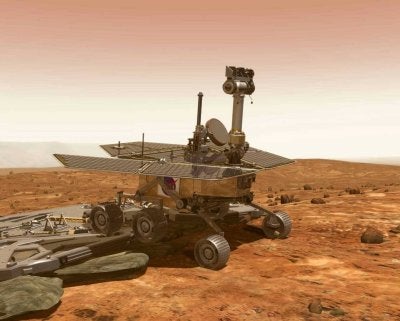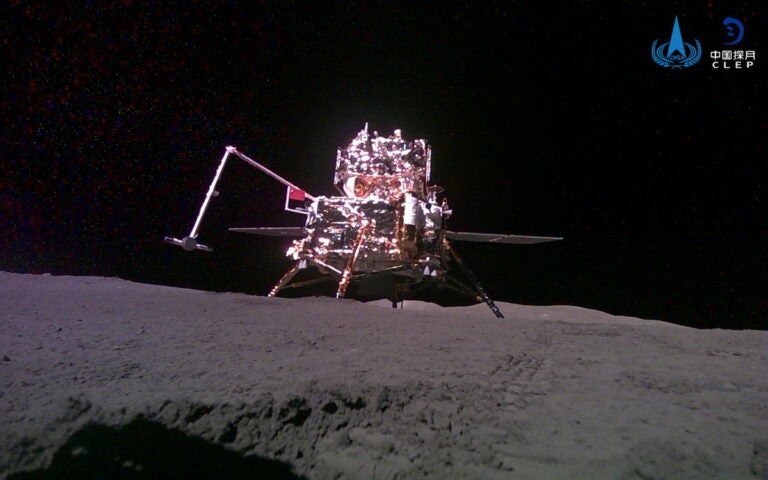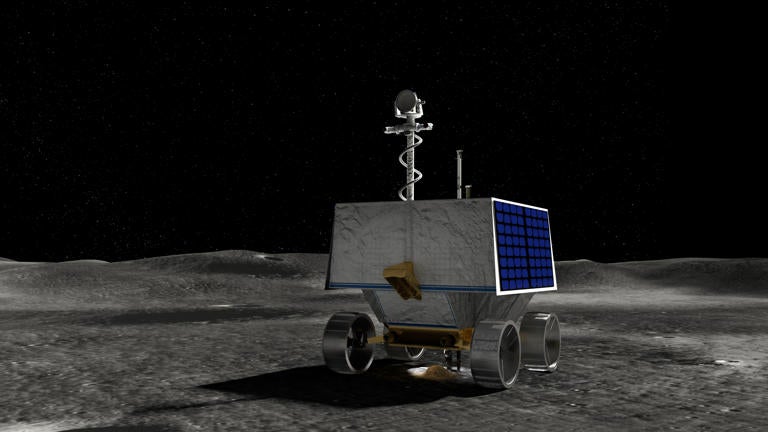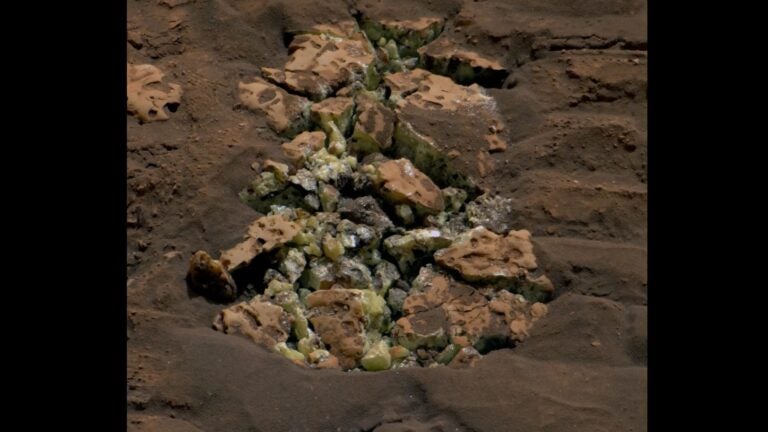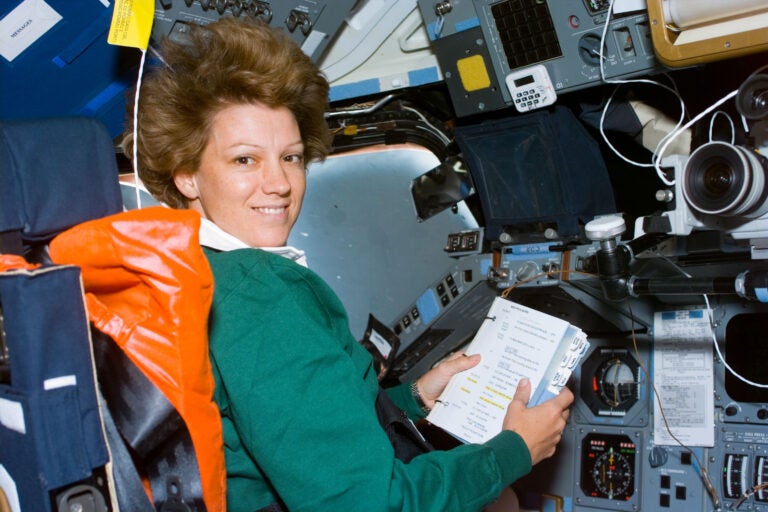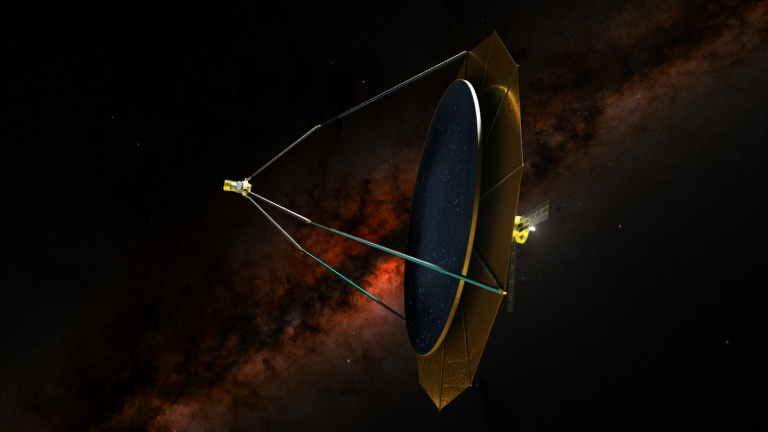The five wheels that still rotate on NASA’s Mars Exploration Rover Spirit have been slipping severely in soft soil during recent attempts to drive, sinking the wheels about halfway into the ground.
The rover team of engineers and scientists has suspended driving Spirit temporarily while studying the ground around the rover and planning simulation tests of driving options with a test rover at NASA’s Jet Propulsion Laboratory (JPL) in Pasadena, California.
“Spirit is in a very difficult situation,” said John Callas, project manager for Spirit, as well as its twin rover Opportunity, at JPL. “We are proceeding methodically and cautiously. It may be weeks before we try moving Spirit again. Meanwhile, we are using Spirit’s scientific instruments to learn more about the physical properties of the soil that are giving us trouble.”
Both Spirit and Opportunity have operated more than 5 years longer than the originally planned 3-month missions on Mars and have driven much farther than designed. The rover team has so far developed ways to cope with various symptoms of aging on both rovers.
Spirit has been driving counterclockwise from north to south around a low plateau called “Home Plate” for 2 months. The rover progressed 400 feet (122 meters) on that route before reaching its current position.
In the past week, the digging-in of Spirit’s wheels has raised concerns that the rover’s belly pan could now be low enough to contact rocks underneath the chassis. The right-front wheel on Spirit stopped working 3 years ago. Driving with just five powered wheels while dragging or pushing an immobile wheel adds to the challenge of the situation.
The wind has removed some of the dust accumulated on Spirit’s solar panels three times in the past month. This increases the rover’s capability for generating electricity.
“The improved power situation buys us time,” said Callas. “We will use that time to plan the next steps carefully. We know that dust storms could return at any time, although the skies are currently clear.”
Behavioral problems that Spirit exhibited in early April — episodes of amnesia, computer resets, and failure to wake for communications sessions — have not recurred in the past 3 weeks, although investigations have yet to diagnose the root causes.

